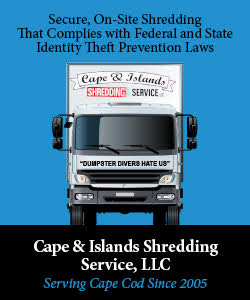Massachusetts has slowly but steadily reopened over the last several months, and hopefully the Commonwealth will continue= on a positive trajectory. However, experts suggest that another surge of COVID-19 could occur in the fall. Moreover, school districts are still making plans for fall instruction, which may include remote learning. These scenarios – the continued presence of COVID-19 in the state, and potential school closures – will inevitably impact Massachusetts employees and businesses.
A federal law called the Families First Coronavirus Response Act (FFCRA), which went into effect in April and expires at the end of December, provides relief for employees managing certain COVID-19 issues. FFCRA is applicable to all private employers with fewer than 500 employees – i.e., most businesses in Massachusetts. As such, all employers and employees should familiarize themselves with this law.
FFCRA has two major components concerning leave: paid sick leave and paid expanded family and medical leave. For perspective, prior to the FFCRA going into effect, federal law did not mandate that private employers provide either paid sick leave or paid expanded family and medical leave. Even though it is limited in scope to COVID-19-related leave, FFCRA is a rather groundbreaking statute.
Who Is Eligible?
The Families First Coronavirus Response Act provides for two weeks (up to 80 hours) of paid sick leave in circumstances in which an employee is unable to work (or telework) due to one of six qualifying reasons:
- Is subject to a federal, state or local quarantine or isolation order related to COVID-19;
- Has been advised by a health care provider to self-quarantine related to COVID-19;
- Is experiencing COVID-19 symptoms and is seeking a medical diagnosis;
- Is caring for an individual subject to an order described in reasons 1 and 2;
- Is caring for a child whose school or place of care is closed (or child care provider is unavailable) for reasons related to COVID-19; or
- Is experiencing any other substantially-similar condition specified by the Secretary of Health and Human Services, in consultation with the secretaries of Labor and Treasury.
Employees who qualify under the first three reasons (i.e., for their own illness) are entitled to be paid at their regular rate of pay. Those who qualify under reasons 4 through 6 (i.e., to care for someone else) are entitled to be paid at two-thirds of their regular rate of pay.
Who Is Eligible for expanded family and medical leave under FFCRA?
FFCRA provides for up to an additional 10 weeks of paid expanded family and medical leave when an employee is unable to work due to a bona fide need for leave to care for a child whose school or child care provider is closed or unavailable for reasons related to COVID-19.
Employees who qualify for this leave must be compensated at the rate of two-thirds their regular rate of pay.
How can small businesses afford to provide this leave?
Private employers that provide FFCRA leave are eligible for 100 percent reimbursement of the costs of both paid sick leave and paid expanded family and medical leave through refundable payroll tax credits.
To recover those credits, it is important for employers to collect documentation from employees who are requesting leave, including the dates of leave requested, the reason for the leave and a statement from the employee that he or she is unable to work because of that reason. Depending on the basis for the leave, additional documentation may be required. For example, if the leave is requested because no child care is available, employers should also document the name of the child being cared for; the name of the school, place of care, or child care provider that has closed or become unavailable; and a statement from the employee that no other suitable person is available to care for the child.
Are any exemptions available for employers?
No exemptions are available for providing PSL pursuant to reasons 1 through 4 and 6 as outlined above.
However, a limited exemption is available for employers with fewer than 50 employees for the two categories of leave related to child care: the paid sick leave for reason 5, and the paid expanded family and medical leave. To obtain an exemption, the business must make a showing that providing such leave would risk the ongoing operations of the business. Detailed requirements about the exemptions are available on the Department of Labor website.
Employers should not assume that an exemption applies to them and should analyze the possibility of an exemption carefully with a legal advisor.
Other Legal Requirements For Small Businesses
Businesses that have not done so already must post a notice of the FFCRA requirements in a conspicuous place on its premises. A poster prepared by the DOL is available for download in multiple languages. Employers may also e-mail the notice to employees or post the notice on an employee information internal or external website.
Employers should also be aware that FFCRA leave is job-protected leave, just like FMLA leave. As such, employees who take FFCRA leave are generally entitled to be restored to the same or an equivalent position upon return from the leave. However, merely taking FFCRA leave does not protect employees from employment actions, such as layoffs, that would have affected them regardless of whether they took leave. Nevertheless, managers should be cautious about firing, disciplining, or retaliating against employees upon their return from FFCRA leave.
Resources
Over the last few months, the DOL has compiled dozens of comprehensive FAQ’s concerning all aspects of the law, and the IRS has done the same. Businesses that outsource their payroll administration may want to consult with their payroll company for guidance on tracking FFCRA leave, as well as documenting it properly to receive the available tax credits. Outside legal counsel can also be extremely valuable to advise employers on how to navigate the FFCRA and mitigate risk.
Kathleen R. O’Toole, Esq., is a Centerville native, Dorchester resident, and attorney at the Boston law firm of Conn, Kavanaugh, Rosenthal, Peisch & Ford LLP. Feel free to send questions to kotoole@connkavanaugh.com.
This column, which may be considered advertising under the ethical rules of certain jurisdictions, is intended as a general discussion of the topics covered, and does not constitute the rendering of legal advice or other professional advice by Conn, Kavanaugh, Rosenthal, Peisch & Ford LLP or its attorneys.


























